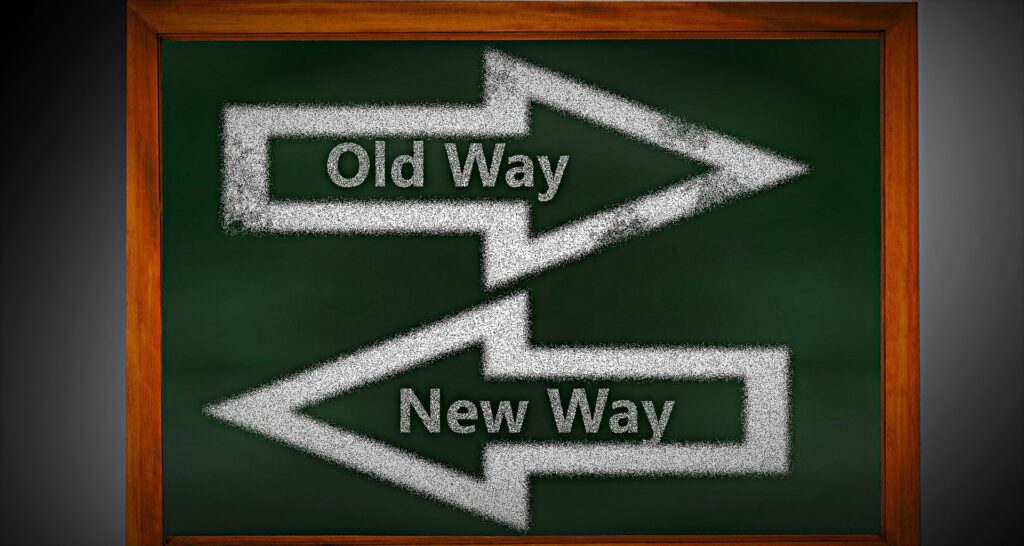
Change projects, culture and familiar issues
Over the past 25 years and more I’ve spent much of my time in and around large-scale and complex change projects. As the years have gone by and the underlying issues have been perceived to be more complex and more difficult to address, “projects” have become “programmes” and “change” has become “Transformation” (with a capital T). However despite these somewhat cosmetic developments, most of these projects have had a number of similar characteristics:
- They are addressing difficult, often intractable issues within the business that are hindering performance and progress, and have often done so for a considerable period
- They are reliant on some fairly fundamental technology deployment to realise the desired change, and these require new ways of working to be established
- They establish a “professional” project / change management team to manage delivery
- They have substantial costs, and significant business cases to support the investment required to deliver them
- They recognise the importance of business engagement and therefore have a ” culture” workstream as part of their delivery structure
Now if you’re reading this, I’m assuming that you’re bought into the importance of good project governance and could engage in an informed discussion about the different methodologies that can be applied to the different types of project to give the greatest chance of successful delivery. So far so good. We all agree. Where I find that there’s less discussion, analysis and understanding, however, is in that final characteristic – “culture”.
Thomas Fuller “All things are difficult before they are easy”
As a rule, the larger, more complex and more fundamental the change, the greater the recognition that fundamental changes will be required in the processes, tools, ways of working and values of the business. This culture change is seen as an outcome from the programme, and time and money is spent on planning activities to bring this change in culture about. However it is often fairly vaguely expressed at the outset of these programmes, or is represented by a standard approach from external support.
Despite all this activity, however, there are many and various examples of projects and programmes that fail to realise their benefits or where the business fails to adopt – at least to some extent – the new ways of working required to succeed. What’s the reason for this? Are we not spending enough time and money on our culture change activities?
Culture – an output of transformation?
Our shared experience is pointing us to a truth that challenges the shape and structure of many of our change projects. Change is difficult. It requires us to challenge our preconceptions, question the rationale behind our operating models, abandon processes tools and methods that have been the foundation of successful careers and businesses. The bigger the change, the greater the likely requirement to step away from what has made us successful into new and unfamiliar territory. The way we have always done things, even though they used to be good, must now be left behind.
With this in mind, why would we think that we can begin this process of Transformation before we have addressed the often unwritten rules, values and ways of working that exist within our businesses, and support the status quo? We could use a sporting metaphor, or a musical one. We would not consider stamina as an output from the process of running a marathon. Developing stamina is a necessary pre-requisite for attempting one, and it takes time and practice to develop. We would not consider technical capability as an output from playing a symphony, but as a necessary pre-requisite for joining the orchestra, and again time, practice and many mistakes and mis-steps are an essential part of the development process.
In our business projects, however, we take a different approach. Even where the need for the change in culture is recognised, it is made an output from the change, and so often projects launch into a business, organisation, process or technology redesign without having done that preparatory work. And the result? Almost every project suffers and struggles in the early, critical design phases, which leads to delays, additional costs and lost opportunities. With the fundamental principles unchallenged we find ourselves redesigning what we’ve already got, rather than addressing the root causes of our performance problems, even if these have historically been a source of strength. The values that have sustained us in the past operate powerfully to push back against the drivers of necessary change and what develops can be expensive, complex and potentially fruitless.
Change Culture – a pre-requisite for transformation
There’s another approach that has a solid foundation in the change literature but that rarely makes it into common business practice. The approach recognises that you cannot effectively change until the values, rules and processes implicit within your current operating model have been surfaced and challenged. The business needs to see that change is both necessary, permissible and effective in resolving problems – even at small scale – before large scale programmes can be effectively launched. If we don’t do this before we start then we’re left trying to change the wheel on the car while travelling at top speed in the outside lane. We must be ready before we start, and therefore we must do the foundational work in preparation for the changes that we know will be necessary. We need to understand the factors and forces that shape and sustain the business as it currently exists, and how these relate to performance. We then need to practice and build up the organisational “muscle” or technical capability to assess, challenge and change these underlying ways of working to realise beneficial outcomes. We have to address this intentionally, and recognise and reward success in undertaking this work to establish an innovation or change culture which, once established, can be deployed in the service of more fundamental transformation.
This change culture does not need to wait for a crisis. There are opportunities in every function or department, every day. The requirement is to change the way we look at the business, and then to empower every member to think about, challenge and reshape the way the business works to deliver better outcomes, however these are measured.
For those of you so-minded it’s worth taking a look at well-established models such as the Burke-Litwin model of performance and change, Kurt Lewin’s “unfreeze – change – refreeze” model, and Kotter’s analysis of the importance of objective, measurable and visible wins at the font of any change programme as essential to project success.
“Problems cannot be solved with the same level of consciousness that created them” – Is it rocket science?
Well it was Albert Einstein who said it, so quite possibly. He was addressing the fundamental paradigms that sit behind physics. He’s often misquoted as saying that “the definition of madness is to do the same thing and expect different results.” Either way the truth is the same and it’s something that’s self-evident. If we are to realise a change to a system or process that we have been part of creating, it’s essential that we challenge and reform the way we think about that system or process to make that change possible and effective.
How do businesses achieve that? Well like marathon running or musical performance, it’s a learning and development process. Change or innovation needs to become rooted in the DNA of the business, a critical and valued part of day to day working. We need to have mechanisms in place that build the muscles and the processes to challenge the way things are every day, and the tools and processes in place for experimenting to solve problems and improve performance in iterative, agile and low risk ways. On top of this we can build mechanisms for scaling up successful experiments, learning from and building on the less successful ones, and delivering measurable performance improvement.
With these new mechanisms in place we will be set for more fundamental change. We will see where the problems lie and we will be generating demand, perhaps urgent demand, for the solutions that will enable us to improve. Our change projects will become led by, pulled from the business rather than imposed on them. We will no longer need to worry about engagement or adoption. Our culture will be changed to enable the transformation to take place, and we can focus our change activities on giving people the tools, skills and capabilities they need to operate effectively in the new world.
———————————————————————————————————————————
Sequent Consulting works with businesses to design and deploy the processes, tools and approaches that create a change culture. For more information or for a conversation contact us.
